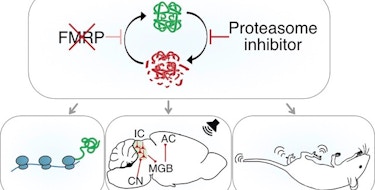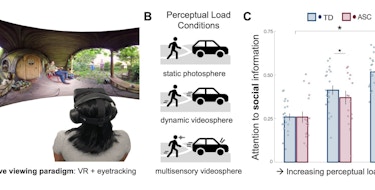A recent study showed that rats lacking the Cntnap2 gene have alterations in auditory processes, which suggest a more immature and overactive auditory cortex.
Mutations in CNTNAP2 have been linked to language impairments and conditions in which language may be affected, including autism spectrum disorder (ASD). Individuals with language-related disorders, such as seen in autism spectrum disorder (ASD), may have delays in the timing of sound processing. Changes in the activity of sound-associated neurons have also been suggested to occur in ASD. Whether Cntnap2 affects language by altering how sound is processed, however, is unclear.
In the current study, SFARI Investigator Susanne Schmid and collaborators showed that loss of Cntnap2 in rats leads to both delays in sound processing, reflective of an immature auditory cortex, and increases in auditory neuron activity. These findings are reminiscent of measurements of auditory processes that have been taken in individuals with ASD and other language-related disorders, supporting the view that language challenges in individuals with genetic mutations in Cntnap2 reflect disruptions to the temporal processing of sound.
The study was partially funded by a SFARI Explorer Award, which was aimed to develop ways to assess hearing deficits in rodents that could be directly compared with the types of auditory tests done in humans. Using these methods in rats lacking Cntnap2, Schmid and their colleagues have been examining the effects of loss of Cntnap2 on sound processing mechanisms, while developing paradigms that could help translate this research in humans.
Reference(s)
Hyperexcitable and immature-like neuronal activity in the auditory cortex of adult rats lacking the language-linked CNTNAP2 gene.
Scott K.E., Mann R.S., Schormans A.L., Schmid S., Allman B.L.


